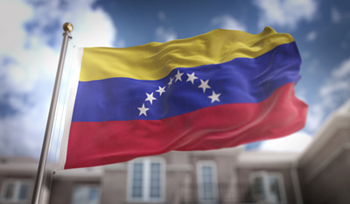
Today, the world is witnessing more humanitarian crises than ever before. Conflict, economic hardship, natural disasters, and famine, are tearing lives apart on a daily basis, condemning people to a very dark or outright nonexistent future. According to the United Nations Office for the Coordination of Humanitarian Affairs (UNOCHA), “more than 134 million people across the world need humanitarian assistance and protection – and more funding than ever before is required to help them” (United Nations Office for the Coordination of Humanitarian Affairs, 2018). Simply put, there are more people in need than there are funds available to rescue them, despite the United Nations’ (UN) record levels of funding solicitation (IRIN: The Inside Story on Emergencies, 2018).
These humanitarian crises are especially deplorable because they are stripping many children of their childhoods. At best, these children are being forced to become “adults” and take care of themselves and sometimes their younger siblings; at worst, they are ending up severely injured or dead.
A country where people, especially children, have been experiencing a tremendous amount of suffering is Venezuela, the once oil producing powerhouse located on the Northern Coast of South America. The main causes of the crisis in Venezuela are the economic downturn that hit the country as a result of the decrease in oil prices and the political turmoil that followed the accession to power of President Nicolas Maduro. Looking at the situation that has been prevailing there for a few years now, one can undoubtedly say that bad governance coupled with economic hardship is a disaster waiting to happen and is a deadly combination. “Shortages of basic goods and soaring inflation have led to growing reports of severe childhood malnutrition in addition to a general healthcare crisis, and to more than a million Venezuelans fleeing the country” (IRIN: The Inside Story on Emergencies, 2018). It is worth mentioning that many countries whose economies depended on oil exports were heavily impacted when the prices dropped in 2015, but Venezuela is the only place where such a drop led to a humanitarian crisis of this magnitude. Steve Hanke, contributor to Forbes reports, “On May 30th [2018], I accurately measured Venezuela’s annual inflation rate, and for the first time, it breached 25,000%, and today, May 31st [2018], it sits at 27,364%” (Hanke, 2018). Inflation is climbing with no end in sight, as people are struggling to find jobs, food, and medicine.
To be able to put the Venezuelan case into perspective, one must look at what is happening at orphanages throughout the country: they are getting crowded beyond capacity because parents are abandoning their children at alarming rates. This phenomenon begs the question: how bad do things have to be for a mother to abandon her child? The intrinsic and unconditional love that a mother has for her child is one of humanity’s universal values that we can all agree on. However, parents are so desperate that they consider giving up their children to be more loving and bearable than keeping them and watching them starve to death. According to Magdelis Salazar, a social worker, “People can’t find food . . . They can’t feed their children. They are giving them up not because they don’t love them but because they do.” (Faiola, 2018).
Where the government failed, private and nonprofit organizations are stepping up and trying to alleviate some of the pain and suffering that Venezuelan children are going through. Nevertheless, the sheer number of cases is making it hard, if not impossible, for them to meet the demand for help. Consequently, many women are resorting to leaving their children on the street.
“I don't have the means to take care of her . . . She is four days old and her name is Angela," wrote a woman on a note as she abandoned her daughter in a parking lot (Armario, 2018). The children who are lucky enough to survive are bound to live on the streets, hungry and prone to disease and even human trafficking. According to Christine Armario, reporter at the Associated Press, “more than 500 Venezuelan children have been taken into custody in Colombia, according to government documents. Police in Cucuta regularly turn at least one or two children a day over to the nation's child welfare agency, where many are then placed in foster homes. At the city’s biggest soup kitchen, some parents have even tried to give their children away.”
As a nonprofit organization striving to improve the lives of orphaned children worldwide, the World Forgotten Children Foundation (WFCF) wants to raise awareness about this humanitarian crisis in Venezuela. It is our collective duty to make sure that these children’s voices are heard, for that is the only way they will not be forgotten. In other words, their story can and must be told.
Sources
Armario, C. (2018, July 13).'We are going hungry here': Venezuela's tale of abandoned, needy children and their parents. Retrieved from The Age: https://www.theage.com.au/world/south-america/we-are-going-hungry-here-venezuela-s-tale-of-abandoned-needy-children-and-their-parents-20180713-p4zrdk.html
Faiola, A. (2018, February 12). Venezuela’s Economy Is So Bad, Parents Are Leaving Their Children at Orphanages. Retrieved from The Washington Post: https://www.washingtonpost.com/world/the_americas/venezuelas-economy-is-so-bad-parents-are-leaving-their-children-at-orphanages/2018/02/12/8021d180-0545-11e8-aa61-f3391373867e_story.html?noredirect=on&utm_term=.1ed6d2ebb848
IRIN: The Inside Story on Emergencies. (2018, July 16). Ten Humanitarian Crises to Look Out for in 2018. Retrieved from IRIN News: http://www.irinnews.org/feature/2018/01/01/ten-humanitarian-crises-look-out-2018
Hanke, S. (2018, May 31). Venezuela's Inflation Breaches 25,000%. Retrieved from Forbes: https://www.forbes.com/sites/stevehanke/2018/05/31/venezuelas-inflation-breaches-25000/
United Nations Office for the Coordination of Humanitarian Affairs. (2018, July 16). Global Humanitarian Overview 2018. Retrieved from Global Humanitarian Overview 2018: https://interactive.unocha.org/publication/globalhumanitarianoverview/


